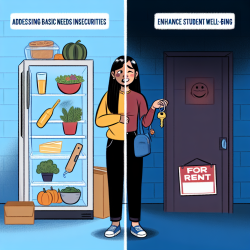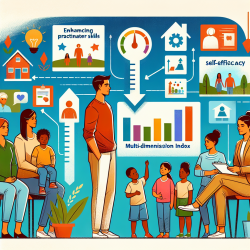Introduction
In the realm of higher education, the well-being of students is paramount. Recent research, particularly the study titled Basic Needs Insecurities Are Associated with Anxiety, Depression, and Poor Health Among University Students in the State of New Mexico, highlights the significant impact of basic needs insecurities on student health and academic outcomes. This blog delves into the implications of these findings for practitioners, emphasizing the importance of data-driven interventions.
Understanding Basic Needs Insecurities
Basic needs insecurities, encompassing food and housing insecurity, are prevalent among university students. The study conducted in New Mexico found that nearly 26% of students experienced food insecurity, while 44% faced housing insecurity. These insecurities are not just statistics; they are linked to increased odds of anxiety, depression, and poor health.
Impact on Mental Health
The research reveals a stark correlation between basic needs insecurities and mental health challenges. Students facing food insecurity had 4.35 times the odds of experiencing anxiety and 3.18 times the odds of depression compared to their food-secure peers. Housing insecurity also showed similar associations, with students having 3.43 times the odds of anxiety and 3.16 times the odds of depression.
Implications for Practitioners
For practitioners, these findings underscore the necessity of integrating basic needs assessments into student support services. By identifying students at risk of food and housing insecurity, interventions can be tailored to address these fundamental issues, potentially alleviating associated mental health concerns.
Actionable Steps
- Implement screening tools for food and housing insecurity in student health services.
- Develop partnerships with local food banks and housing assistance programs to provide immediate support.
- Advocate for policy changes at institutional and governmental levels to address the root causes of basic needs insecurities.
Encouraging Further Research
While this study provides valuable insights, further research is essential to explore the multifaceted nature of basic needs insecurities. Longitudinal studies could offer deeper understanding of the long-term impacts on student health and academic success.
Conclusion
Addressing basic needs insecurities is not just a moral imperative but a strategic approach to enhancing student well-being and academic performance. Practitioners are encouraged to utilize these findings to inform their interventions and advocate for comprehensive support systems.
To read the original research paper, please follow this link: Basic Needs Insecurities Are Associated with Anxiety, Depression, and Poor Health Among University Students in the State of New Mexico.










